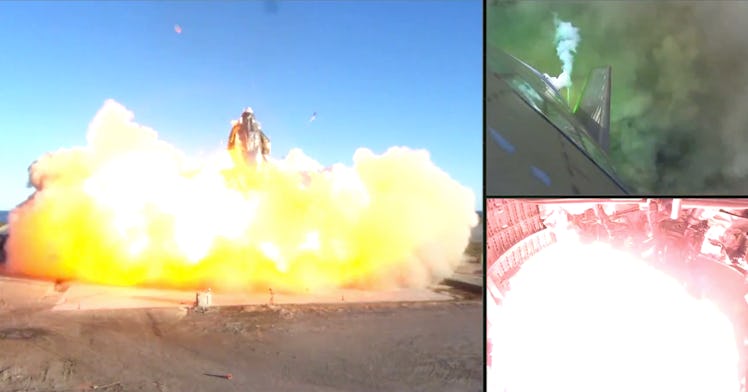Show Your Kids the Epic SpaceX Crash — For Science
Engineers learn more from failure than success. In that, the Starship Mars crash is a success.

The supposed failure of Wednesday’s SpaceX crash was actually not a failure at all.
The company’s rocket prototype Starship flew nearly 8 miles high, and in less than seven minutes after lift-off, exploded, while landing back at the test site outside of Boca Chica, Texas. In response to the crash, Elon Musk was elated.
In fact, SpaceX Founder and CEO Elon Musk himself said that the crash of the unmanned airplane was an opportunity for the company to learn and grow. Despite the crash, which was captured on video, Starship’s brief flight signaled apparent progress and moving closer to Musk’s dream of passenger travel to Mars. Musk expressed excitement about Starship over Twitter, writing, “Fuel header tank pressure was low during landing burn, causing touchdown velocity to be high & RUD, but we got all the data we needed! Congrats SpaceX team hell yeah!!”
Musk’s gracious response (which is not always expected, coming from him) is a lesson for all parents in how to teach their kids about the benefits of failure. Bill Gates did, after all, once say, “It’s fine to celebrate success, but it is more important to heed the lessons of failure.” From Gates to Musk, successful entrepreneurs have extolled the virtues of failure, and that’s something that kids should be thinking about as well to help them embark on lives of discovery, curiosity, and invention — as well as the scientific process itself.
Starship is a prototype of a rocket that SpaceX plans to use to take people to Mars, a dream that is likely at least several years into the future: Musk has optimistically predicted that Starship could begin carrying passengers in 2026.
So, what actually happened? And why is a rocket doing a belly flop actually a good thing for SpaceX? Well, because the Starship had performed better than any of SpaceX’s previous prototypes, which would end up destroyed before they had a chance to take flight, this launch signals significant progress. Since Musk says that the SpaceX team “got all the data” that they needed, the launch and subsequent crash give them an opportunity to learn and get a better grasp on fixing their mistakes. That’s basic experimentation and scientific method — and will help the SpaceX team gather more data as they work to get to Mars.
Watch the rise and fall of Starship below.
This article was originally published on